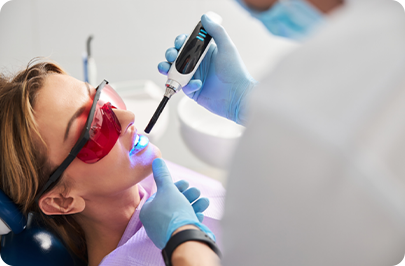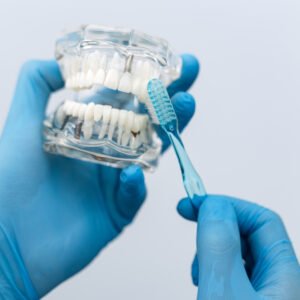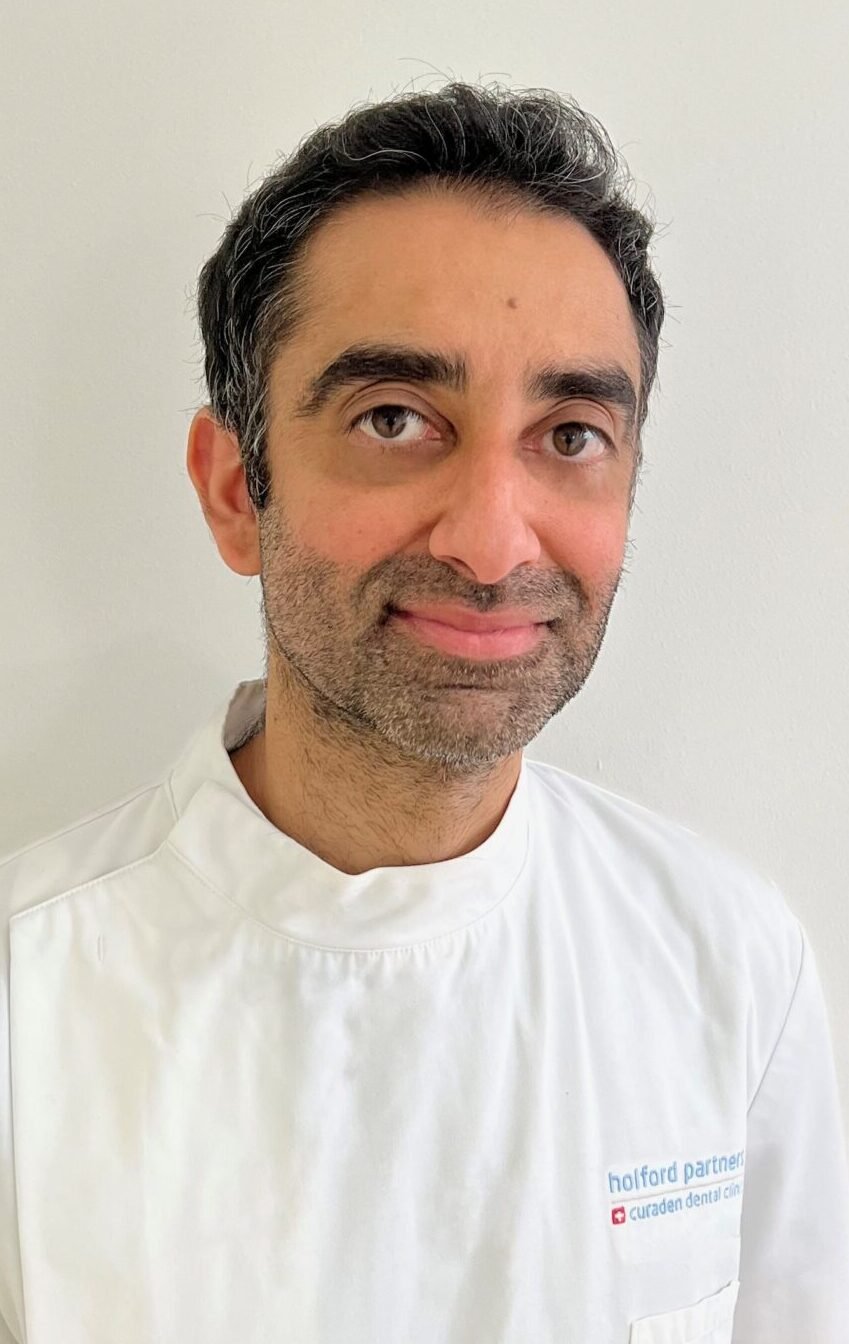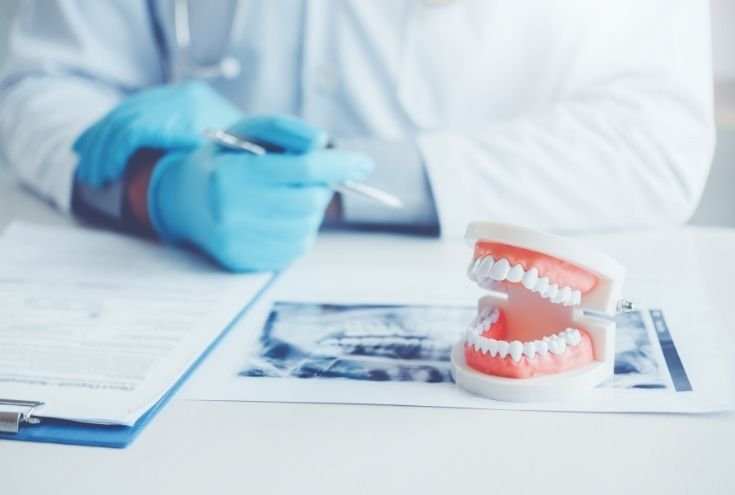

Fissure Sealants
Fissure sealants are a dental treatment that is used to protect the teeth from decay. They are a thin, resin coating that is applied to the chewing surfaces of the back teeth (premolars and molars) to seal the grooves (fissures) and pits that are found on these surfaces.
You can get the best solutions for all of your dental needs.
No more going from one clinic to another.
Expertise, convenience, results.
Fissure Sealants
Fissure sealants are a dental treatment that is used to protect the teeth from decay. They are a thin, resin coating that is applied to the chewing surfaces of the back teeth (premolars and molars) to seal the grooves (fissures) and pits that are found on these surfaces.
You can get the best solutions for all of your dental needs.
No more going from one clinic to another.
Expertise, convenience, results.

What are Fissure Sealants?
Fissure sealants are a preventative dental treatment that is designed to protect the teeth from decay by sealing the grooves and pits found on the chewing surfaces of the back teeth. These grooves and pits are called fissures, and they are natural indentations found on the surface of the teeth that are difficult to clean with a toothbrush. Food particles and bacteria can become trapped in these fissures and can lead to tooth decay if not properly cleaned.
The procedure for applying fissure sealants is relatively simple and painless. The tooth is cleaned, and then an acid solution is applied to the chewing surface of the tooth to roughen it. This helps the sealant to bond better to the tooth. The sealant is then applied and hardened using a special light. Fissure sealants are made of a clear colourless resin that is painted onto the teeth. Once dried it becomes very tough. They are mainly used for children once they get their permanent teeth. The entire process usually takes just a few minutes per tooth.
What are the benefits?
According to the American Dental Association (ADA), fissure sealants can reduce the risk of decay in molar teeth by up to 80%.
The ADVANTAGES of fissure sealants include:
– They are a cost-effective way to prevent tooth decay.
– They are a non-invasive procedure, and do not require drilling or anaesthetic.
– They can be applied to children and adults, making them a good option for both paediatric and adult patients.
– They can last for several years, depending on the wear and tear of the tooth and the oral hygiene of the patient.
The DISADVANTAGES of fissure sealants include:
– They may not last as long as other types of dental restorations, such as fillings. However fissure sealants are a preventative treatment to stop caries or decay and fillings are more restorative to fix issues caused by decay.
– They may not be suitable for patients who have deep fissures or pits in their teeth.
What is the process?
It is a quick and easy way to protect the teeth from decay. Here’s what you can expect during the procedure:
1. The dentist will clean your teeth to remove any plaque or debris from the tooth surface.
2. An acid solution will be applied to the chewing surface of the tooth to roughen it. This is done to help the sealant adhere to the tooth surface.
3. The tooth is then washed and dried, and the sealant is applied to the tooth surface.
4. The sealant is then hardened using a special light.
5. The dentist will then check the bite and polish the sealant to ensure a smooth surface.
6. The entire process usually takes just a few minutes per tooth.
The procedure is relatively painless, and most patients report no discomfort during the treatment. Some patients may experience slight sensitivity or discomfort during or after the procedure, but this usually subsides quickly.
After the procedure, it’s important to follow the aftercare instructions provided by the dentist to ensure the longevity and effectiveness of the treatment.
It’s important to keep in mind that fissure sealants are not permanent, and they may wear away or become damaged over time. Regular check-ups with the dentist are necessary to evaluate the condition of the sealants and to reapply them if necessary.
The procedure for applying fissure sealants is typically done by a dentist or dental hygienist, and it usually takes just a few minutes per tooth.
The tooth is first cleaned, and then an acid solution is applied to the chewing surface of the tooth to roughen it. This helps the sealant to bond better to the tooth. The sealant, which is typically made of a resin material, is then applied to the tooth and hardened using a special light.
Fissure sealants are an effective way to prevent tooth decay, particularly in children and young adults who are at a higher risk of developing cavities in their molars.
They are also a non-invasive procedure and do not require drilling or anaesthetic, making them a good option for patients who are anxious about dental procedures.
Fissure sealants are not permanent, and they may wear away or become damaged over time. They typically last for several years, but their longevity depends on the wear and tear of the tooth and the oral hygiene of the patient. Regular dental check-ups are necessary to evaluate the condition of the sealants and to reapply them if necessary.
Fissure sealants are not suitable for everyone, and they may not be recommended for patients who have deep fissures or pits in their teeth or a history of tooth decay.
It’s important to consult with a dentist to determine if fissure sealants are the right option for you and your oral health needs.
After having fissure sealants applied, it’s important to follow proper aftercare instructions to ensure the longevity and effectiveness of the treatment. Here are some aftercare instructions you should follow:
1. Avoid eating or drinking anything that can stain the sealant for the first 24 hours after the treatment.
2. Brush and floss your teeth as normal, but be gentle around the sealed teeth to avoid damaging the sealant.
3. Avoid biting hard or crunchy foods for the first 24 hours after the treatment.
4. Limit your intake of sugary and sticky foods as they can cause decay around the sealed teeth.
5. Attend regular check-ups with your dentist to have the sealants checked and reapplied if necessary.
6. Be mindful of any sensitivity or discomfort you may experience in the sealed teeth and inform your dentist if it persists.
7. Keep in mind that fissure sealants are not permanent and may need to be reapplied every few years.
8. Follow good oral hygiene practices, including regular brushing and flossing, to ensure the longevity of the fissure sealants.
By following these aftercare instructions, you can help ensure that your fissure sealants last as long as possible and continue to protect your teeth from decay. Remember to always follow the instructions provided by your dentist and to contact them if you have any questions or concerns.
Fillings and fissure sealants are both dental treatments that are used to protect the teeth from decay, but they are used in different ways and have different characteristics.
Fillings are used to repair a tooth that has already been damaged by decay. They involve removing the decayed portion of the tooth and then filling the space with a tooth-coloured material such as composite resin. This helps to restore the function and appearance of the tooth.
Fissure sealants, on the other hand, are used to prevent tooth decay from occurring in the first place. They are applied to the chewing surfaces of the back teeth (premolars and molars) to seal the grooves (fissures) and pits that are found on these surfaces. This helps to prevent food particles and bacteria from becoming trapped in these grooves and causing tooth decay.
One of the main differences between fillings and fissure sealants is that fillings are used to treat existing decay, while fissure sealants are used to prevent decay from occurring. Another difference is that fillings are typically more invasive and require drilling and anaesthetic, while fissure sealants are a non-invasive procedure and do not require drilling or anaesthetic.
Fillings are also more durable than fissure sealants, and can last for several years. But, fissure sealants are also effective in protecting the teeth and can last for several years as well, depending on the wear and tear of the tooth and the oral hygiene of the patient.
In summary, fillings are used to treat existing decay, while fissure sealants are used to prevent decay from occurring. Fillings are more invasive and require drilling and anaesthetic, while fissure sealants are non-invasive and do not require drilling or anaesthetic. And, fillings tend to last longer than fissure sealants.
How much are fissure sealants?
Prices will vary depending on the extent of your treatment. Treatments range from teeth whitening to full smile makeovers.
FISSURE SEALANTS (per tooth) ……………….. from £95
Who Offers Fissure Sealants?
Preventive Dentistry
Affordable Treatment: Preventive Dentistry
Preventive dentistry services cover a wide range of procedures to maintain and improve your oral health and interventions for issues.
The practice covers core procedures from diagnostics and preventive interventions to complete recovery from any oral health issue.
Preventive Dentistry
Are You In Pain Or Discomfort?
We advocate prevention to avoid gum problems, but if you are experiencing pain or discomfort right now, we can remove that problem for you as early as possible. You don’t need to wait until your next checkup – book an emergency appointment to see us now.

We will use tools including a mirror and probe to see all parts of your mouth thoroughly.
Once we have a diagnosis, we will prescribe you either hygiene cleaning, maintenance instructions, products you must use, or treatment if you have an issue.
A dental examination is a painless process that you should do regularly, at least once every six months.
Regular check-ups will help you prevent complex dental problems that will cost you a lot of money in the future.

Our dentists will teach you the best oral hygiene techniques and products that fit your lifestyle.
We will prescribe you a long-term schedule or program for regular hygiene cleaning for your teeth to continue being in top shape and have a superstar’s confidence.
Prevention is always better than cure, and you could end up using a lot more money than you would have if you neglect it.
Come to our clinic at least every six months and save money with preventive care.
Hygiene cleans are a painless dental service where a dental hygienist professionally cleans your teeth and gums.
The hygienist first checks your mouth for infections or inflammations to make sure you are ok to clean.
Then, we proceed to scaling or removing plaque and tartar from your teeth’s surfaces and gaps and near the gumline using a manual scaler (small hook) or an ultrasonic scaler.
The ultrasonic scaler uses gentle vibration and water to remove significant amounts of plaque and tartar.
Then the hygienist will proceed to flossing, polishing, and fluoride application.
Whether it is your child’s first time going to a dentist or the kid is more or less apprehensive, you can be sure that things will calm down at Holford Partners Curaden.
The ambience and feel of our clinic are warm and hospitable with the friendliest staff and dentists.
We make sure that your child will find visits and treatments painless and enjoyable. Your child will have perfect teeth and learn and practice the best oral health care habits at home.
Oral health care and love for visiting the dentist regularly should start at a young age.
If you want your child to grow up confident and healthy, call Holford Partners Curaden today and book a visit.
Maintenance,
Early Detection
& Treatment
CHECK-UPS
Check-ups are a basic but valuable service that you need for preventive oral care. You cannot simply self-check because a dentist will have professional tools.
MAINTENANCE
During your regular visits to the dental clinic, you should also see the hygienist for your hygiene cleans, as well as your dentist who will give you solid, professional advice on how to maintain a healthy mouth.
TREATMENTS
During your regular check-up or when you call for an emergency appointment, your dentist will see if you need treatment and do it as early as possible.
Maintenance,
Early Detection
& Treatment
CHECK-UPS
Check-ups are a basic but valuable service that you need for preventive oral care. You cannot simply self-check because a dentist will have professional tools.
MAINTENANCE
During your regular visits to the dental clinic, you should also see the hygienist for your hygiene cleans, as well as your dentist who will give you solid, professional advice on how to maintain a healthy mouth.
TREATMENTS
During your regular check-up or when you call for an emergency appointment, your dentist will see if you need treatment and do it as early as possible.
Frequently Asked Questions
Fissure sealants are not permanent and they may wear away or become damaged over time. They typically last for several years, but their longevity depends on the wear and tear of the tooth and the oral hygiene of the patient. Regular dental check-ups are necessary to evaluate the condition of the sealants and to reapply them if necessary.
Fissure sealants are typically recommended for children and young adults as they are more likely to have deep grooves in their molars that are harder to clean and more prone to decay. However, adults can also benefit from fissure sealants if they have deep grooves in their molars and are at a higher risk of tooth decay.
The procedure for applying fissure sealants is typically done by a dentist or dental hygienist, and it typically takes just a few minutes per tooth. The tooth is first cleaned, and then an acid solution is applied to the chewing surface of the tooth to roughen it. This helps the sealant to bond better to the tooth. The sealant, which is typically made of a plastic material, is then applied to the tooth and hardened using a special light.
Fissure sealants are generally considered safe and have minimal risks when applied by a qualified and licensed dental professional. The procedure is non-invasive and does not require drilling or anesthesia.
The procedure for applying fissure sealants is typically painless. Some patients may experience slight sensitivity or discomfort during or after the procedure, but this usually subsides quickly.
Yes, you can continue to brush and floss your teeth normally after the fissure sealants are applied. It’s important to maintain good oral hygiene to help prolong the life of the sealants.
They are not suitable for everyone and may not be recommended for patients who have deep fissures or pits in their teeth or a history of tooth decay. It’s important to consult with a dentist to determine if fissure sealants are the right option for you and your oral health needs.
It is recommended to schedule a follow-up appointment with the dentist to check the condition of the fissure sealants and ensure they are still effective. These appointments can be included in regular dental check-ups.












